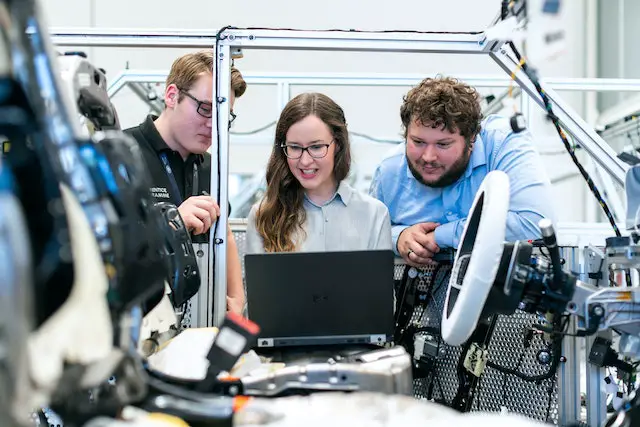The advent of 5G technology is poised to revolutionize the automotive industry particularly in the realm of connected cars. As the fifth generation of wireless technology 5G offers unprecedented speed capacity and reliability enabling a wide range of innovative applications and services for connected vehicles. In this article we explore the profound impact of 5G technology on connected cars and how it is shaping the future of mobility.
1. Enhanced Vehicle Connectivity
One of the key advantages of 5G technology is its ability to provide ultra-fast and reliable connectivity. With significantly lower latency and higher data transfer rates compared to previous generations 5G enables seamless and instantaneous communication between vehicles infrastructure and the cloud. This connectivity breakthrough opens up new possibilities for advanced vehicle-to-vehicle (V2V) and vehicle-to-infrastructure (V2I) communication leading to improved safety traffic management and overall efficiency on the road.
2. Intelligent Traffic Management
5G technology empowers connected cars with real-time access to vast amounts of data including traffic conditions road hazards and weather updates. By leveraging this information connected vehicles can make informed decisions and adapt their routes in real-time avoiding congestion and optimizing travel time. Additionally intelligent traffic management systems utilizing 5G connectivity can enhance traffic flow and reduce gridlocks through dynamic traffic signal control thus reducing fuel consumption and emissions.
3. Advanced Driver Assistance Systems (ADAS)
Connected cars equipped with 5G technology can leverage the increased bandwidth and responsiveness to enhance advanced driver assistance systems (ADAS). With the ability to transmit and receive large amounts of data rapidly 5G enables more accurate and real-time information for features like lane-keeping assist adaptive cruise control and collision avoidance systems. This advanced connectivity ensures that ADAS functions operate seamlessly providing a safer and more comfortable driving experience.
4. Over-the-Air (OTA) Updates
Traditionally updating a car’s software required a visit to the dealership or service center. However with 5G technology connected cars can receive over-the-air (OTA) updates in real-time similar to how smartphones receive software updates. This capability enables automakers to remotely deliver software upgrades bug fixes and new features enhancing vehicle performance and functionality without requiring physical visits. OTA updates improve user experience reduce maintenance costs and ensure that connected cars are always up-to-date with the latest advancements and security patches.
5. Enhanced Entertainment and Infotainment
With 5G connectivity connected cars can deliver an immersive and personalized infotainment experience for passengers. High-speed data transfer rates and low latency enable streaming of high-definition content seamless integration with online services and access to a wide range of entertainment options. Passengers can enjoy video streaming online gaming and personalized content recommendations during their journeys. Furthermore 5G connectivity enables seamless integration with personal devices and cloud services providing a consistent and personalized user experience across different platforms.
6. Vehicle-to-Everything (V2X) Communication
5G technology expands the scope of vehicle connectivity beyond V2V and V2I communication. It introduces the concept of vehicle-to-everything (V2X) communication encompassing vehicle-to-pedestrian (V2P) vehicle-to-network (V2N) and vehicle-to-grid (V2G) communication. This comprehensive connectivity enables vehicles to communicate with pedestrians traffic management systems and the power grid unlocking new possibilities for enhanced safety energy management and integration with smart city infrastructure.
In conclusion 5G technology is set to transform the automotive industry by revolutionizing the capabilities of connected cars. Enhanced vehicle connectivity intelligent traffic management advanced driver assistance systems over-the-air updates enriched entertainment and infotainment and vehicle-to-everything communication are just a few of the areas where 5G will have a profound impact. As 5G networks continue to expand and mature we can expect a future where connected cars are safer more efficient and seamlessly integrated into the broader transportation ecosystem.

Hi, I’m Jodie! I’m a spain-Moroccan writer with a passion for imagination, adventures, magic and stories with heart.
Please don’t hesitate to contact me for any questions, suggestions, comments or feedback.

















Add comment